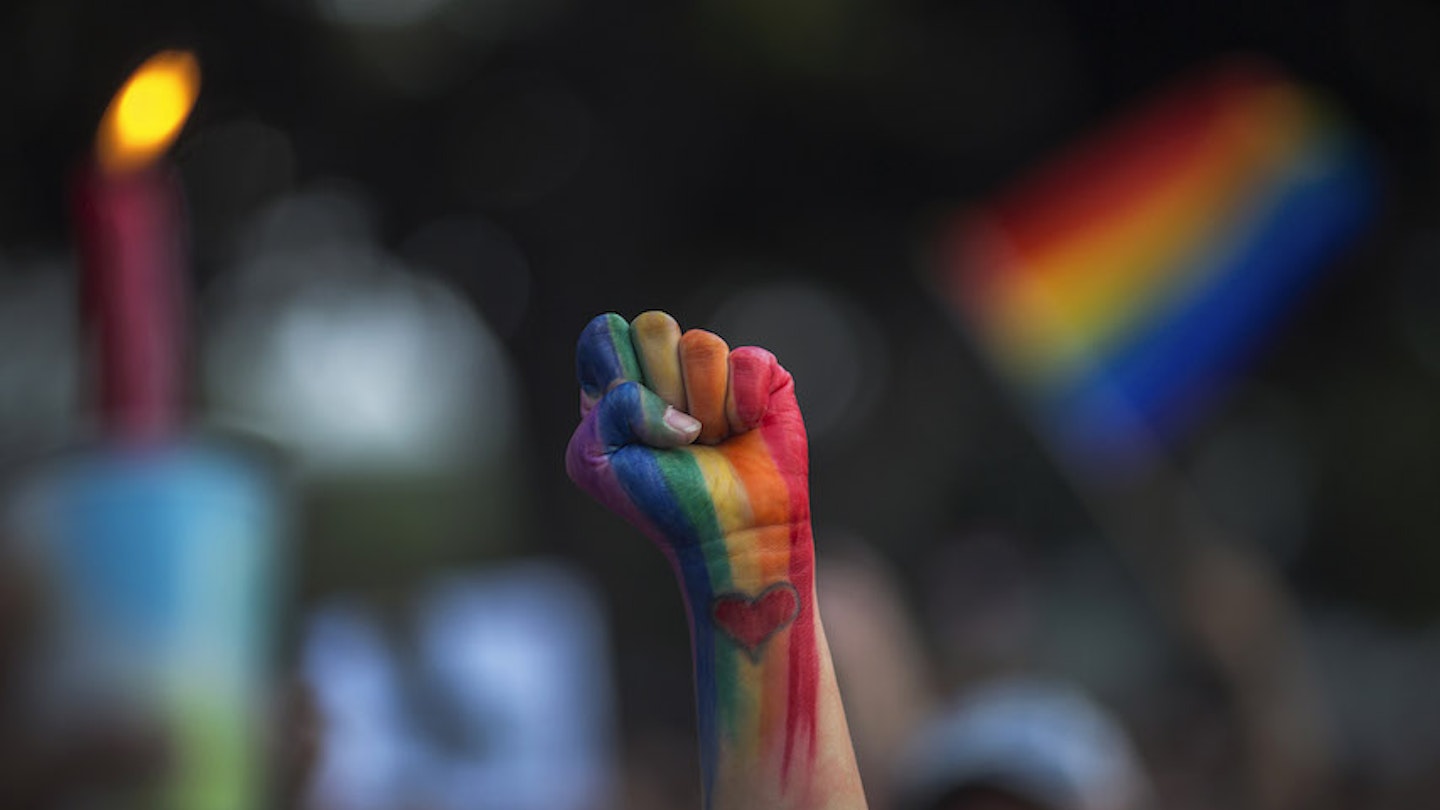It is human nature to shy away from discussing terrible things; Lucy Vine says we need to keep trying...
I don't know how to write about this. I don't know how to use words in the right way to say how sad I am. And sad isn’t the right word. Sad doesn’t cover the emotions involved when 49 people have been murdered in a place they thought was safe. But what word is enough? What words can I use to make sense of a senseless mass murder of people, because of who they love? I think that’s why we so often end up saying nothing. Something this awful and unfair is too big to be real, too big for us to post on Facebook underneath a friend’s baby pictures. We get numb when the numbers are this horrifying, and we sit and we hide and we wait for it to go away.
But what happened last weekend is too important to do that. Last Sunday morning, Omar Mateen entered nightclub, Pulse, in Orlando and started open-firing. Over the course of three hours, he murdered 49 people and critically injured at least 53 more. It was initially reported as a terrorist attack because the gunman phoned 911 and claimed to be an agent of Daesh, but it’s looking increasingly like it was simple, complicated, disgusting homophobia that drove Mateen into the club that night (a place he’d been to many times before, as a self-hating patron). It was homophobia that took him into a space that was meant to be a safe haven, and that needs saying over and over, so we can work out how to stop it happening again.
As a cisgender person, it is not really possible for me to imagine living a life knowing that who you love – who you love – could provoke that kind of hatred. The idea that you’d need a warm, welcoming safe place you can go to – to meet people who get it, who have been through the same thing as you, who’ve been spat at in the street for holding hands with another person – the idea that they had that brutally ripped from them is the worst kind of devastating. I think Editor Rebecca Nicholson at Vice said it best:
'Unless you have felt the need for that kind of space, the desperate desire for a safe haven in which it is possible to be the person you are, then it is difficult to comprehend the deep pain of having that sanctuary torn away with such violence and such horror. Gay clubs are supposed to be an escape from hate and prejudice and fear. They are spaces in which a minority still subjected to frequent violence and hate crimes and the pernicious drip-drip of sneering at difference can get away from all of that and drink and dance and desire each other, openly and freely, without being afraid.'
You might not have felt the need Nicholson speaks about, but you can be more than that. You can understand that you can’t fully understand, and you can also stand up, say you’re so sorry this happened and ask what you can do to help. Especially now – especially now – because there will be so many afraid young people out there this week. Maybe some of those 75,000 young people who are bullied each year for being gay. Or the one in six LGBT victims of reported hate crimes here in the UK, in the last three years alone. There are people who may now hide who they are, because of a twisted, broken psychopath I wouldn’t even legitimise by calling a terrorist.
We need to talk about it, even if we get some of the words wrong. So talk to those around you about those 49 people and what hatred did to them.
Read survivor Angel Colon’s account of playing dead and watching the shooter circling the room, re-shooting the bodies – and then shooting him again in the hand and hip. Look at the photos of crying parents sitting outside on the ground during the aftermath, waiting for news of their children.
Read that doctor’s account from the nearby Orlando Regional Medical Centre, who recalls 'singularly the worst day of my career' as she watched the 'war scene' unfold; sobbing, blood-covered victims, who just kept coming and just kept dying.
Go watch US comedian Samantha Bee’s furious rant about gun control where she speaks for us all, saying, 'after a massacre, the standard operating procedure is that you stand on stage and deliver some well-meaning words about how we will get through this together. But you know what?... I am too angry for that. Love does not win, unless we start loving each other enough to fix our XXXXing problems.'
Watch US journalist Anderson Cooper’s interview with a survivor who hid in the bathroom during the siege, rang his mother and said 'mom, mom, mom,' over and over as he listened to Mateen reload bullets on the other side of the door. Listen to him describe the people around him screaming, 'Please please please don’t shoot us' as Mateen emptied his round at them and 'the floor started bleeding.' Be haunted by his description of the gunman laughing.
Talk about all of it, so we can start to root out the hatred that still perniciously seeps through society. And then remember Martin Luther King’s quote that I’ve seen retweeted many times this week: 'In the end, we will remember not the words of our enemies, but the silence of our friends.'
